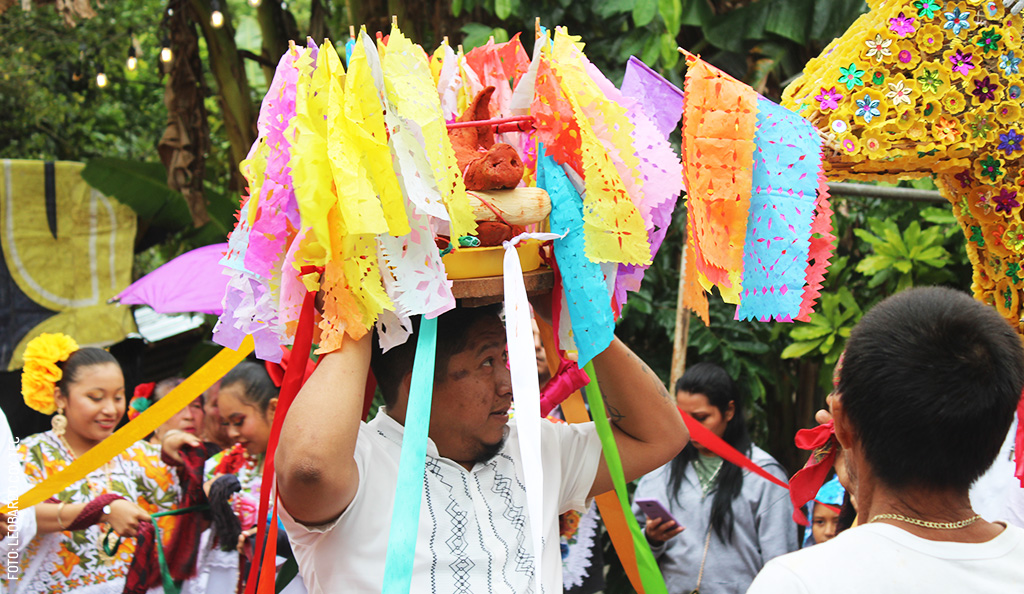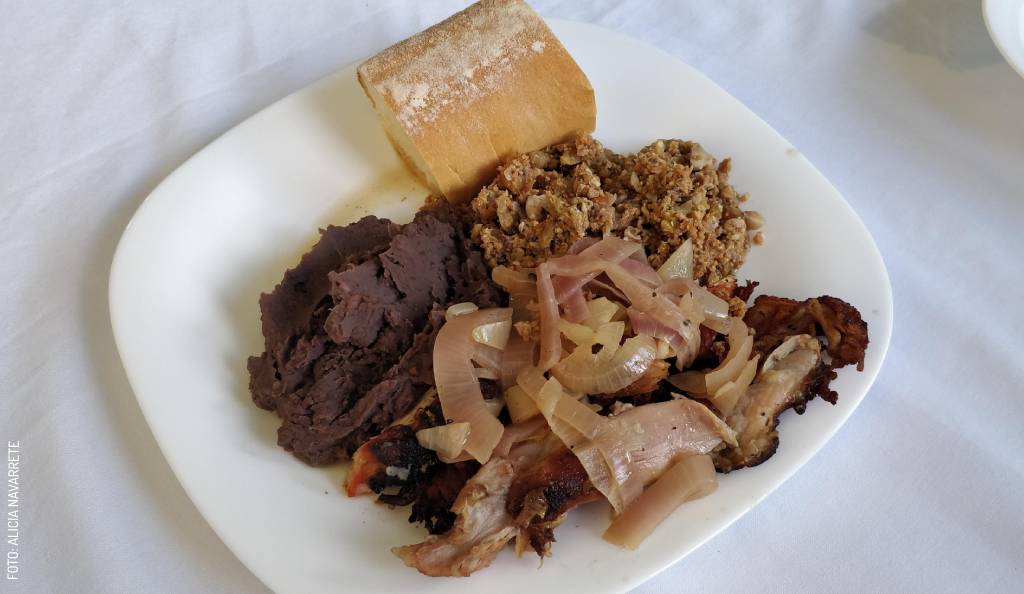
The Five Staples of the Yucatecan Christmas Dinner
What to eat for Christmas, The Five Staples of the Yucatecan Christmas Dinner
Talking about a single Christmas menu that applies to all Yucatecan families isn’t just hard, but plain impossible. Each family adds the specialty of an uncle, the spoiled niece’s favorite dish, an impulse-buy snack someone came across, etc. However, I can tell you about five staples of the traditional Christmas dinner in Yucatán, and about how a Yucatecan family (mine) prepares them each year.
In Yucatán (as in the rest of México), the big celebration takes place on December 24, Christmas Eve. It’s a night 100% for the (extended) family, and it takes hours and hours (read: days) to prepare. For as long as I can remember, the Navarrete family has celebrated at my Chichí's house, even after her death in 2017. Chichí, in case you don’t know, is what Yucatecos call our grandmas.
The menu consists of pasta soup (penne rigate) made with turkey broth; grilled turkey stuffed with But (Yucatecan mince, pronounced “boot”); refried beans; pickled onion; and many, many bars of Yucatecan French bread. We always include a fruit salad, made with fruit cocktails, grapes, and Media Crema. Just thinking about the meal makes my mouth water.
One by one, the nuclear families arrive, dressed to the nines and bearing presents. Our Christmas dinner is the occasion for all of us to get together. Since part of the family lives in Cancún, we only get to see some of them once a year now that Chichí isn’t around to scold them for missing her birthday. That’s why our celebration always begins with everyone catching up, trying the different dips, and drinking cider.
The beans
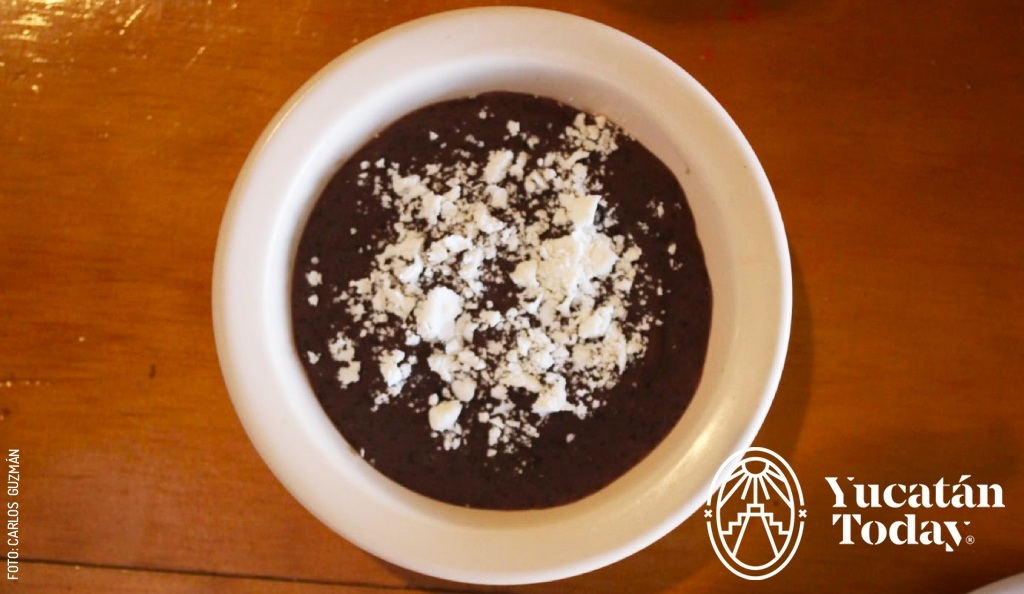 This is where the first (and most important, in my opinion) element of dinner comes into play: the refried beans. There may be any number of appetizers on the table: cilantro dip, chips, and Charritos, cold cuts. This is all good and all, but you cannot (and should not) miss a trip to the kitchen to steal some beans spread on a slice of bread. That’s why buying many more loaves than we think we’re going to need is so essential.
This is where the first (and most important, in my opinion) element of dinner comes into play: the refried beans. There may be any number of appetizers on the table: cilantro dip, chips, and Charritos, cold cuts. This is all good and all, but you cannot (and should not) miss a trip to the kitchen to steal some beans spread on a slice of bread. That’s why buying many more loaves than we think we’re going to need is so essential.
The thing about the Christmas refried beans is that they’re special, and take quite a while to prepare. Like the rest of the menu (and many other Yucatecan dishes), it’s not hard per se, but extremely laborious, and requires time and patience. A single person could make the whole meal if they have a good attitude and several days to spare.
The But (remember: boot!)
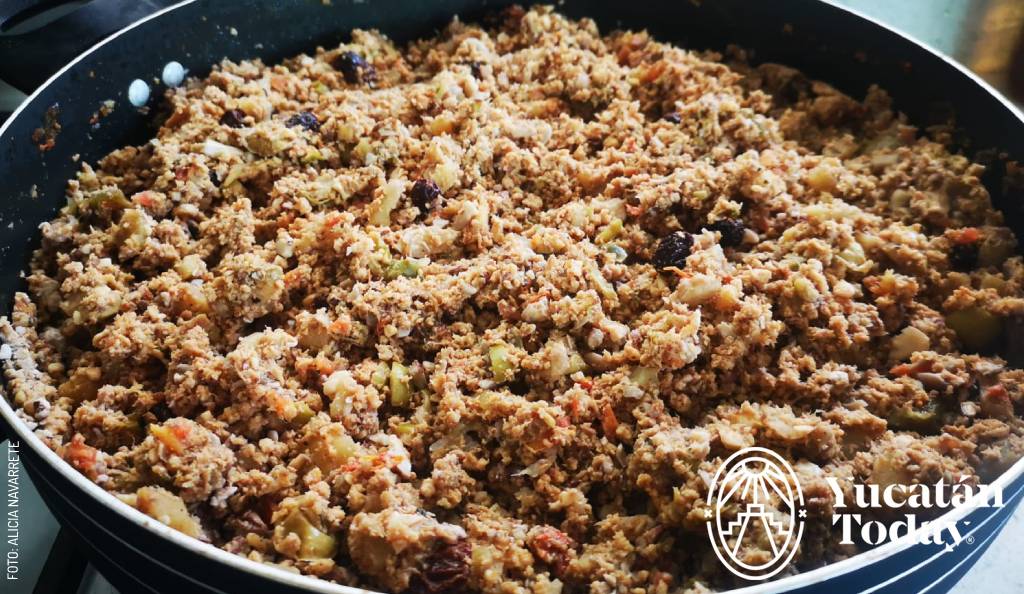
If the list of dishes seems long, wait till you hear how many ingredients each one takes. I think the most complicated is the But or Relleno (the stuffing), whose preparation begins with a chunk of pork that is cooked with garlic, oregano, and salt. Once cooked, it is ground with hard-boiled egg whites, and fried with tomato, onion, Chile Dulce, olives, raisins, capers, almonds, walnuts, apple, and grapes. You also add a specially prepared spice mix (Recado) that includes, among other things, oregano, garlic, allspice, and cinnamon.
The turkey
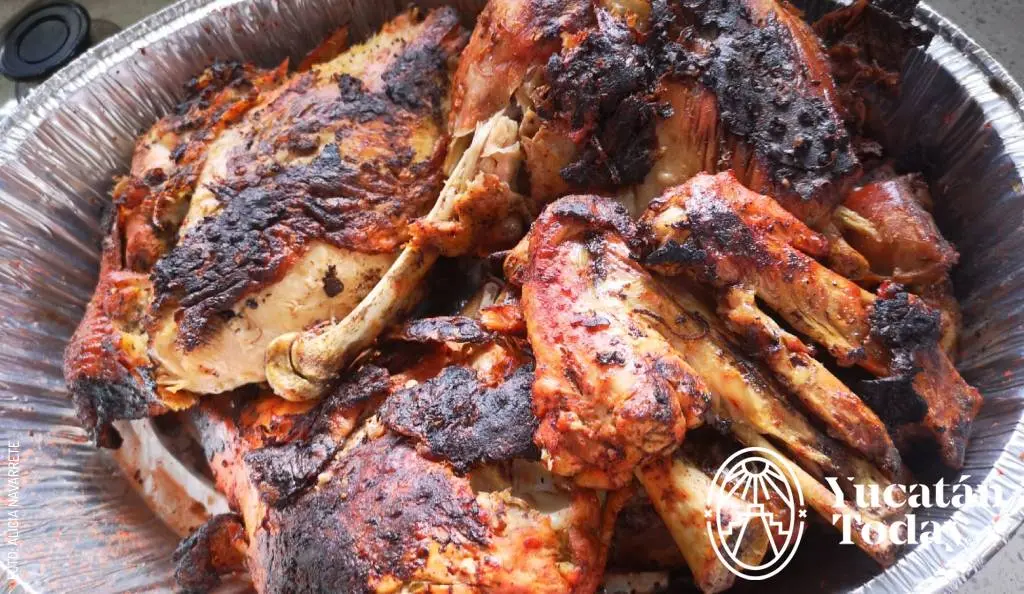
The But is (finally) ready! Now, for the turkey. We rub it with Recado and cook it in the pork broth; Once cooked, it is rubbed again, now with Recado de Achiote, and then grilled. The Navarrete Rosel family, out of practicality, abandoned traditionalism several years ago, and instead of working with the whole turkey, we make it in pieces. This makes handling very easy but results in a turkey that is not as photogenic as one would like. It also has the terrible disadvantage that the more portable parts, such as the neck and wings, often get lost on the way to the table. I guess no cook can resist a freshly grilled turkey.
The pasta soup
The delicious pork (and later turkey) broth is used to cook the pasta soup. My Chichí, who was all about cooking big, used to choose rigatoni to give it an extra oomph. Rigatoni, in case you’re unfamiliar, is quite bigger than a spoon.
Pickled onion
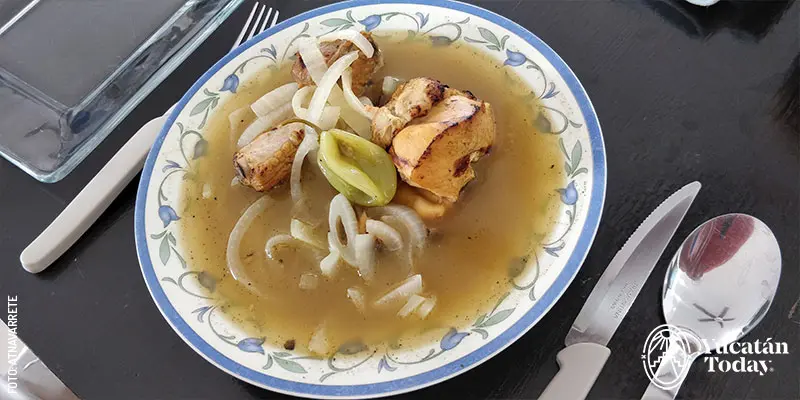
You might think that the pickled onion is the simplest part of the meal, and I guess that’s true: it’s just onions, vinegar (or a combination of sour oranges and broth), oregano, and Chile Xcatik. The thing is that, if you’re making it with vinegar, it’s best enjoyed made a day in advance, so that it will be tasty, but not spicy. If you make it the same day (or without vinegar), you’ll need to cook it, which means you risk the Xcatik bursting.
The meal
When the time comes, after presents, we sit down and have dinner in groups. Everyone prepares their own dish according to their preferences: soup with or without Tuches, liver, or gizzards. Black or white meat. Onion with or without Xcatik.
My dad is a traditionalist. He likes to have his soup as his first course, and then, on a different plate, he gets turkey, But, beans, and pickled onion. I enjoy life on the wild side, so I usually get a bowl and help myself to turkey and beans, cover them with soup, and finally the onion, to give it color and flavor. If I have space (usually not), I have a little bit of But.
The “salad” - with fruit cocktail, Media Crema, and pecans - can be served as a side or dessert for those who still have room.
So much work would seem like a waste just for one night, right? Luckily, on the 25th, while the rest of the world begins to celebrate, Yucatecans enjoy the Nach or leftovers. After all, leftovers always taste even better...assuming you’re left with any.
Would you like to try the traditional Yucatecan dinner?
It seems to me that the Christmas turkey is like Frijol con Puerco: a super Yucatecan dish that most Yucatecans never have outside their home. Perhaps that’s why it’s not really something you usually find in a restaurant; those who don’t make it themselves know someone who knows how to make it.
Still, there are plenty of good options. An excellent one is La Buena Vida, a gourmet Cocina Económica (FB: La Buena Vida MID), which offers a fantastic Yucatecan dinner package for 5 or 10 people every year. You can check out the menu and ask for more information through WhatsApp at 99 91 57 88 00 or 99 91 44 52 48.
Other great choices include La 1a. de San Nicolás (Tel. 999 986 7723), Doña Ileana, in Chuburná de Hidalgo (Cel. 9991 39 02 00), and Doña Lilia Chim (9992 59 80 54), in Conkal. Even if their schedules are already full for Christmas Eve dinner, you can talk to them and plan for a different date. Finally, you could ask anyone who makes Panuchos, including at the market stalls.
In all cases, it is important to order in advance, because as you can see, it is a long and thorough process, and those who prepare it might have limited capacity.
Happy Holidays!
Photography by Alicia Navarrete and Carlos Guzmán, for its use in Yucatán Today.
First published in Yucatán Today print and digital magazine no. 408, in December 2021.

Author: Alicia Navarrete Alonso
As a kid I heard that there's more to see than can ever be seen and more to do than can ever be done, so I set out to try. I'm passionate about knowledge and I love to share whatever my own is.
In love with Yucatán? Get the best of Yucatán Today delivered to your inbox.
Related articles
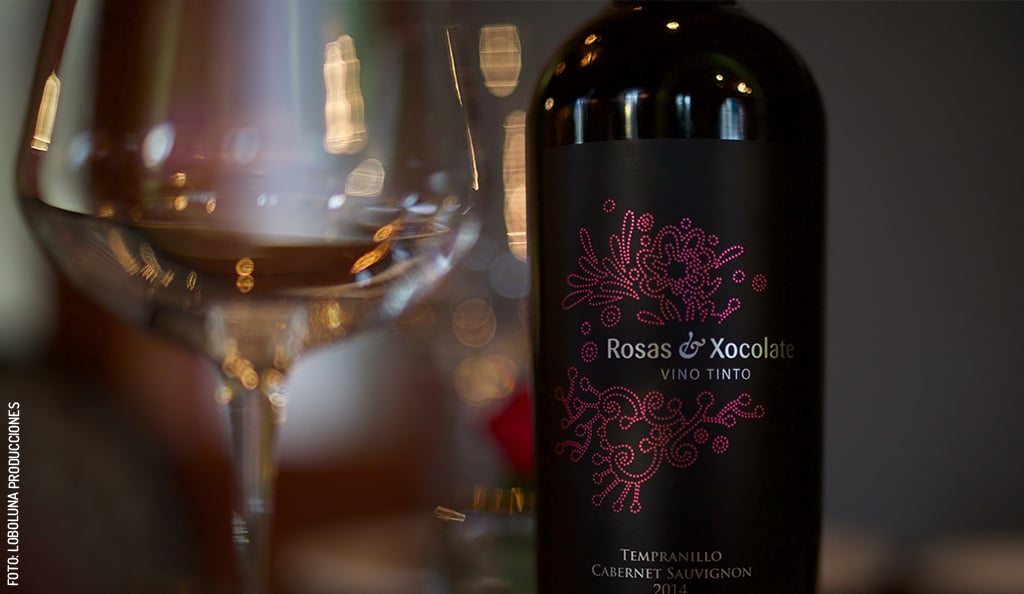
Where to Find Your Christmas and New Year’s Eve Feast in Mérida in 2022
Ready to celebrate the 2021 holidays on a full stomach? Enjoy a wonderful meal in Mérida this Christmas and New Year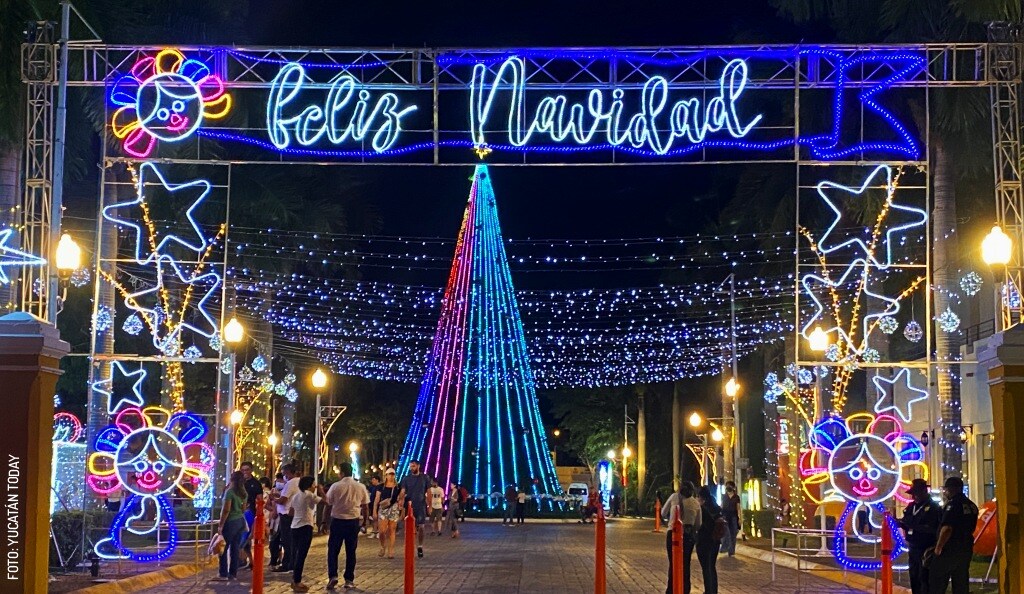
6 Mérida Outings to enjoy Christmas with the whole family
Discover the most charming corners of Merida during Christmas, Did you know them? The best Christmas decorations, shows and activities.